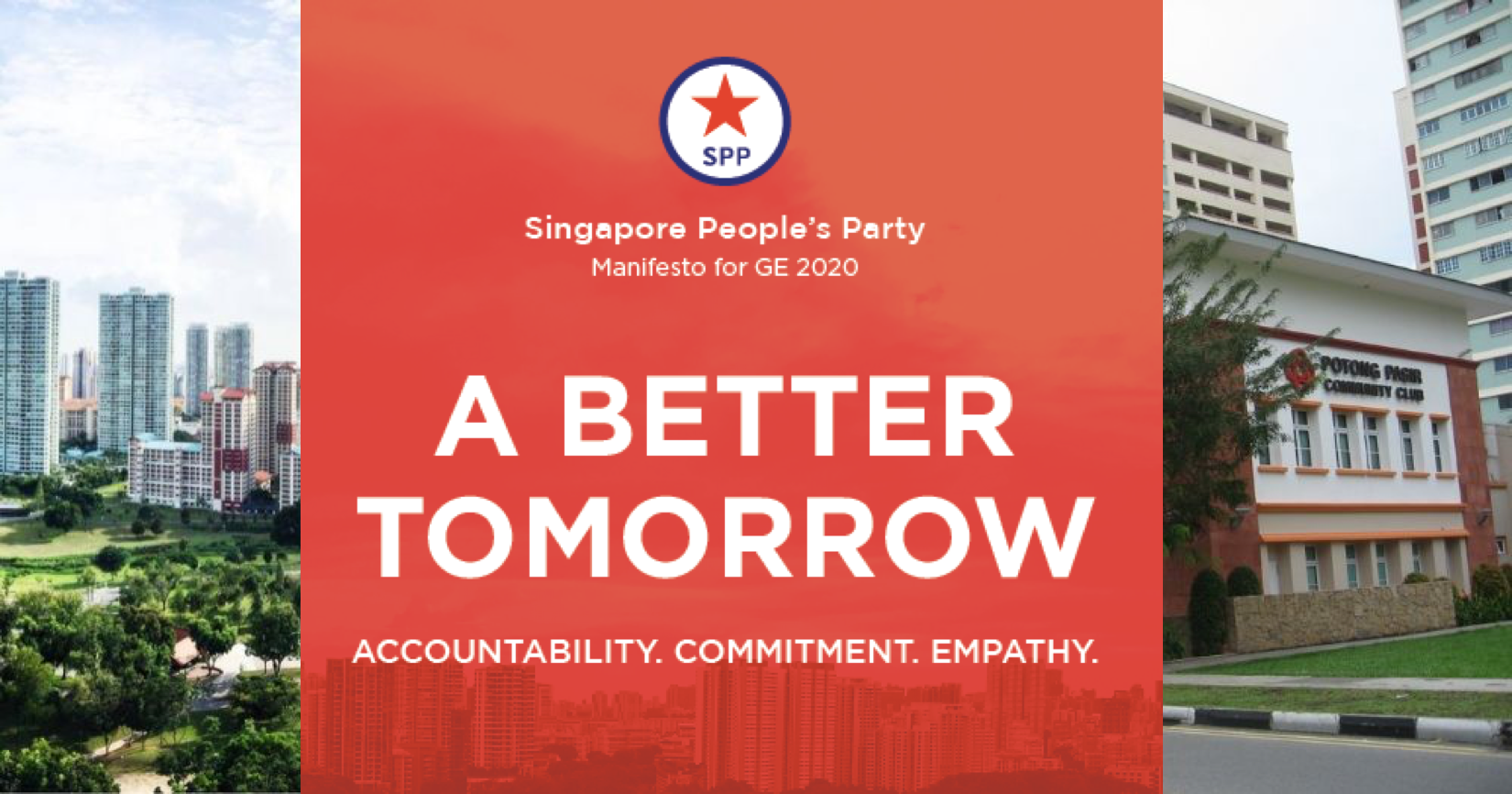The Singapore People's Party (SPP) launched its manifesto on Sunday, June 28. It features:
- Three basic tenets of Accountability, Commitment and Empathy.
- 10 topics.
- 31 proposals in total.
You can download and read it here.
In a Zoom conference call with SPP members, including Secretary-General Steve Chia, party Chairman Jose Raymond explained that they had been working on the manifesto for more than a year.
It is based on feedback on the ground from residents, from non-government organisations, activists and other members of the public.
SPP will also be launching a specific manifesto for Potong Pasir SMC, where Raymond intends to stand.
Issues that need to be addressed, from before Covid-19
While the outbreak of Covid-19 affects nearly everything in Singapore these days, Raymond said that the issues in the manifesto were being brought to the surface by its impact. He added:
"Especially now in this period, we recognise that while we do have to face up to the reality of what Covid has done to Singapore and Singaporeans and globally, we do need to recognise that there are some issues which we face as a country, pre Covid, that need to be addressed as well. And Covid has made us all the more feel the urge and the urgent need to find solutions for some of these problems."
The 10 topics cover a range of issues, from pocketbook matters like Lowering the Cost of Living and Strengthening Requirement Adequacy through CPF, to Improving Mental Health and Empowering the Youth.
Proposal to abolish ethnic quota for HDB flats to help sellers
One proposal, under the topic of Affordable Housing, states that the SPP supports abolishing the ethnic quota or Ethnic Integration Policy when selling HDB flats:
"After 55 years of nation-building and sharing about the values of integration, tolerance and multiculturalism, it may be the case that the ethnic quota has served its purpose."
In response to a question from Mothership, SPP member Osman Sulaiman said that minority races looking to sell their HDB flats may find the quota prohibitive due to a smaller pool of potential buyers.
These residents can only sell to buyers from the same ethnic quota, and this may affect their home prices. He added: "So I think it is best that the government don't interfere much (with the) free market."
Raymond also addressed the question, and said that while knocking on doors in Potong Pasir, he met a number of residents who had difficulty selling their flats, or the buyers were not able to pay the market rate. He said that was why they want back to look at the ethnic integration policy.
National study to determine basic standard of living for a minimum wage
In response to a question from the media on introducing a minimum wage, Chia said that the party proposed conducting a nationwide study to determine the amount needed to maintain a basic standard of living.
After this, a minimum wage should be instituted and pegged to that amount.
Chia said this is a "long overdue proposal policy", and it will help to prevent the exploitation of workers in Singapore.
Chia also fielded a question on whether voters would see Chiam See Tong and Lina Chiam on the campaign trail, and mentioned that Lina Chiam accompanied the Bishan-Toa Payoh team the previous day.
Important issues of mental health, youth empowerment and the environment
Ariffin Sha, SPP's Assistant Secretary-General, highlighted topics that "traditionally do not feature in election manifestos", like Mental Health, the Environment and the Empowerment of Youth.
He said that the SPP takes such issues very seriously, and that they engaged other groups to get their views and see how "the gaps of the system can be filled." He added:
"And it is our hope that such topics when introduced into the election discourse can help to further the progress of these causes."
Raymond also said that people need to recognise that Singapore is at a different level of nation-building, and Singaporeans' needs are different than in the past.
He added that as a party, they wished to bring up these issues which may not usually be discussed in a traditional election rally or discourse, because they are important to people's lives.
Top image via Wikipedia commons, Bishan Toa Payoh/FB, SPP
If you like what you read, follow us on Facebook, Instagram, Twitter and Telegram to get the latest updates.
